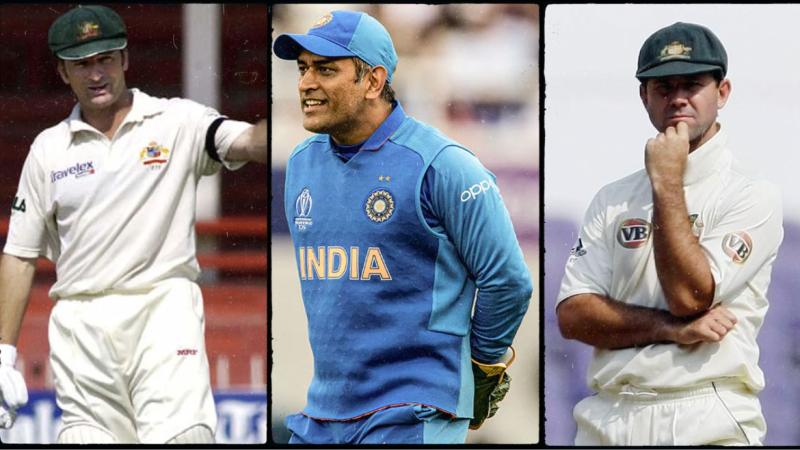Most Successful Captains in Cricket: A Statistical Analysis

The role of a captain in cricket extends beyond making tactical decisions on the field—great captains inspire their teams, adapt to challenges, and turn potential losses into historic victories. Over the years, some captains have stamped their names in cricketing history, proving that leadership can be the defining factor between an ordinary team and a world champion.
In this statistical analysis, we delve into the most successful captains in cricket, exploring their records, achievements, and what made them stand out in this skill-based game.
Metrics of Success: What Defines a Great Captain?
Success in cricket captaincy is measured by multiple factors, including win percentage, major tournament victories, and the ability to perform under pressure. The best captains not only lead by example with their performances but also extract the best from their teammates. Let’s break down the most successful captains in cricket based on these key statistics.
1. Ricky Ponting – Australia’s Winning Machine
Matches as Captain: 324 (All Formats)
Win Percentage: 67.91%
Major Achievements: 2 ICC Cricket World Cups (2003, 2007), 2 Champions Trophies
Ricky Ponting remains one of the most successful captains in cricket, leading Australia to a golden era of dominance. His aggressive approach and ability to back his players made Australia nearly unbeatable. With a staggering win percentage of nearly 68%, Ponting's leadership in this skill-based game ensured that Australia maintained its supremacy for over a decade.
2. MS Dhoni – The Captain Cool
Matches as Captain: 332 (All Formats)
Win Percentage: 53.61%
Major Achievements: 2007 T20 World Cup, 2011 ODI World Cup, 2013 Champions Trophy
Mahendra Singh Dhoni’s ability to stay calm under pressure earned him the nickname “Captain Cool.” His unique leadership style, coupled with his sharp cricketing mind, saw India achieve some of its biggest milestones. The 2011 ICC World Cup victory was a testament to his exceptional leadership, making him one of the most successful captains in cricket.
3. Steve Waugh – The Master Strategist
Matches as Captain: 163 (Tests & ODIs)
Win Percentage: 65.23%
Major Achievements: 1999 ICC World Cup Winner
Steve Waugh’s captaincy was characterized by resilience and a never-give-up attitude. Under his leadership, Australia set new benchmarks in Test cricket, including a record-breaking 16 consecutive Test wins. His strategic acumen and ability to foster a winning mentality make him one of the most successful captains in cricket history.
4. Virat Kohli – The Modern-Day Leader
Matches as Captain: 213 (All Formats)
Win Percentage: 63.38%
Major Achievements: No ICC Trophies, but numerous bilateral series wins
While Virat Kohli is yet to secure an ICC trophy as a captain, his aggressive leadership style and high standards have transformed India into a formidable side. His focus on fitness, attacking mindset, and ability to lead from the front have made him one of the most successful captains in cricket in terms of win percentages.
5. Clive Lloyd – The West Indian Powerhouse
Matches as Captain: 143 (All Formats)
Win Percentage: 66.00%
Major Achievements: 1975 & 1979 ICC World Cup Winner
Clive Lloyd led the legendary West Indies team of the 1970s and 80s, making them an indomitable force. His aggressive yet composed leadership helped the team dominate world cricket, making him one of the most successful captains in cricket. His vision and ability to unite a diverse squad played a pivotal role in West Indies' golden era.
The Role of Leadership in Skill-Based Games
Cricket is not merely a sport. Like other skill-based games, demands a combination of strategy, execution, and adaptability. A great captain’s ability to read the game, make crucial decisions under pressure, and inspire players plays a significant role in determining outcomes. Much like in other competitive environments, success in cricket is not purely about talent but also about the right leadership and strategic mindset.
Conclusion
The most successful captains in cricket are not just defined by statistics but by the lasting impact they leave on their teams and the game. From Ponting’s dominance to Dhoni’s calmness, each leader has brought a unique approach to captaincy. As cricket continues to evolve as a skill-based game, future captains will need to adapt and innovate to achieve greatness.
Whether it is winning crucial matches, making bold decisions, or nurturing young talent, great captains ensure their legacy endures long after they step away from the game.
Post Your Ad Here